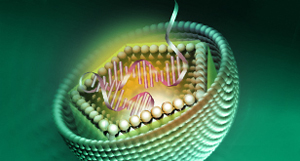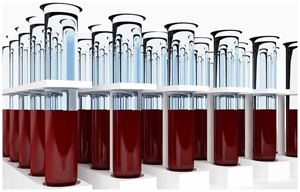Hepatitis C
Hepatitis C is spread by blood-to-blood contact. The major pathways of infection include:
Intravenous (IV) and intranasal drug use.
Blood transfusion.
Organ transplant before 1992.
Blood factor before 1987.
Mother-to-fetus infection. (There is approximately a 4% rate of passing the HCV infection from an infected mother to her unborn child.)
Injection vaccine guns from the Vietnam era. (Recruits would be lined up and the same bloody needle would be used to vaccinate multiple recruits. These multiple injections tended to happen in alphabetical order, so recruits with last names beginning closer to the end of the alphabet had a higher risk of being infected.)
Kidney dialysis.
Needle sticks from infected patients.
Contaminated medical equipment, including tattoo needles.
At Alchemist Lab, about 7% of our patients have been unable to pinpoint any significant risk and are at a loss to explain how they became infected.
The Hepatitis C virus does not transmit very effectively sexually, though it is possible to become infected through sexual activity. One large scale study of monogamous couples found zero cases of transmissions between partners. The Centers for Disease Control and Prevention (CDC) does not recommend barrier protection between monogamous partners in cases where one person is infected. They do, however, suggest precautions with razors, toothbrushes, and utilizing caution when any open wounds are present.
Hepatitis C: The Symptom Picture
The more progressed signs and symptoms of Hepatitis C can look more like acute Hepatitis. Such indications include itchy skin, dark urine, light colored stools, jaundice, and tenderness in the liver area.
Initial symptoms of hepatitis C can look like a million other complaints with fatigue, mental confusion, depression, digestive upset, poor sleep, easily frustrated or angry. These symptoms of Hepatitis C can all worsen into significant problems. When the liver is heavily damaged, fatigue can end up with a patient becoming overwhelmingly narcoleptic. Mental confusion can end up as hepatic encephalopathy, where high ammonia levels poison the brain. Digestive upsets can worsen, and often include gallbladder pain, with nausea or pain when eating rich foods.
Advanced symptoms of Hepatitis C can also include spider veins, edema of the legs, ascites, bleeding episodes, and wasting of the arms and legs. Both the liver and spleen can enlarge. Portal hypertension can cause kidney disease. It can turn into HCC or hepatocellular carcinoma, or primary liver cancer.
The portrait of an end-stage liver patient can resemble a child dying of malnutrition: Stick-thin limbs with a swollen belly. Not a pretty sight.
Autoimmune HCV is associated with autoimmune illnesses such as:
Rheumatic arthritis, with pain and swelling of limbs.
Cryoglobulinemia, with pain and swelling of limbs, rashes, sores, kidney disease, inflammation of blood vessels, and peripheral neuropathy.
Lichen planus, which is itchy bumps on the skin and oral cavity.
In the understanding of the German physician Hans Nieper, Hepatitis C itself is an autoimmune illness, though allopathic medicine does not view it as such — see the page on Dr. Nieper and his treatment of HCV.
Hepatitis C: Alchemist Lab Remedies and Treatments
At Alchemist Lab we use a sophisticated and individualized approach to the treatment of hepatitis C. We base our protocols on the variations of symptoms, bloodwork, stage of disease, lifestyle, affordability, and many other factors. This is not a one size fits all approach. In the section on Blood Tests and Signs/Symptoms you can get an understanding of how we use different remedies in a specific manner.
This website is designed for you to navigate through and have the information to make good choices in creating your own protocol.
For progressed cases with advanced symptoms we highly recommend having a consultation.




